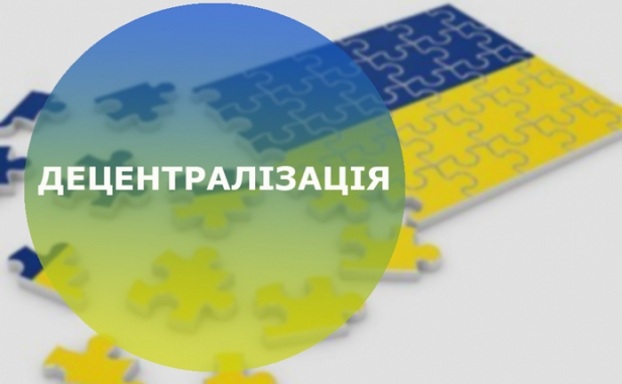

Несомненно, децентрализация — один из залогов того, что Украина выстояла в полномасштбной войне с Россией. Здесь дело даже не в ТерОбороне/ДФТГ или помощи переселенцам, а в самой философии подхода украинца к своей общине/селу/городу.
Хотя последние полтора года из-за войны было точно не до разговоров о дальнейшей судьбе децентрализации, но это отнюдь не означает, что децентрализация не должна развиваться.
В общении с очень многими главами общин, задаются фактически идентичные вопросы: будут ли укрупнять общины? Что делать с полномочиями, на которые не дают ресурсы, и где взять дополнительные ресурсы на выполнение текущих функций? Как урегулировать взаимодействие с военно-гражданскими администрациями?
А еще: уплата НДФЛ, в том числе «военного», лесная реформа, комплексно-пространственное планирование и планы восстановления, где взять средства на укрытие для школ и садиков, закупки для Сил обороны и многие другие.
Однако, ответы на них можно найти в плоскости дальнейшего будущего децентрализации.
И общинам нужны ответы уже сегодня, не откладывая до времен после-Перемоги. Потому что это именно тот случай, когда раньше — лучше, ведь решения нужны «на вчера».
К счастью, этот диалог начался. Обсуждения стартовали на нескольких взаимосвязанных площадках. Это — профильное Министерство инфраструктуры, парламентский комитет местного самоуправления и Конгресс местных советов при Президенте Украины. Давайте немного о каждой из этих площадок.
Министерство развития общин, территорий и инфраструктуры Украины. Здесь продолжаются оживленные дискуссии на тему дорожной карты децентрализации и обновления государственной стратегии регионального развития. Привлечены различные эксперты, главы громад и ассоциации органов местного самоуправления.
Сейчас идет цикл стратегических сессий, по результатам которых сформируют документ, который, вероятно, станет ориентиром для этого и связанных министерств.
Далее его представят на обсуждение общинам и уже после учета их предложений, состоится финальное утверждение этой дорожной карты.
Парламентский Комитет по вопросам организации государственной власти, местного самоуправления, регионального развития и градостроительства. Это площадка, где приоритетом является законодательная составляющая для громад и децентрализации.
В различных форматах (как непосредственно в Комитете, так и во время выездных заседаний и круглых столов) проговаривается, нарабатывается и формируются дальнейшие предложения изменений в действующие законы или будущие законопроекты.
Конгресс местных и региональных властей при Президенте Украины. Это президентская линия решения проблем местного самоуправления. Кроме того, здесь представлены как законодательная ветвь власти, так и исполнительная и сами органы местного самоуправления. Заседания проходят при участии руководителей других площадок и стейкхолдеров направлений.
Кроме заседаний, появился новый формат работы — конгрессные слушания и заседания Президиума. А также крайне важный формат — решение конкретных проблем конкретной территории. Фактически, это тет-а-тет центральной власти с местным самоуправлением, где можно напрямую рассказать о том, что тебя беспокоит.
Всеукраинская ассоциация громад, как профильное объединение органов местного самоуправления, приобщена ко всем площадкам.
По данным недавнего исследования, проведенного ОО «ДЕСПРО», вот топ-10 основных проблем, с которыми сталкиваются громады и органы местного самоуправления:
- Низкая мотивация квалифицированных кадров для работы в ОМС из-за низких должностных окладов (76%; 238 человек);
- Недостаточное количество рабочих мест в общинах (67,2%; 210 человек)
- Недостаточная способность органов местного самоуправления на осуществление собственных и делегированных полномочий (62,5%; 195 человек)
- Недостаточная эффективность предоставления жилищно-коммунальных услуг (55,7%; 174 человек)
- Ненадлежащее (некачественное) выполнение функции по администрированию местных налогов и сборов налоговыми органами (42,2%; 132 человека)
- Нечеткость в разграничении полномочий между ОМС и местными органами исполнительной власти (40%; 125 человек)
- Уменьшение поступлений в местный бюджет из-за освобождения сельхозпроизводителей от платы аренды за землю (36,1%; 113 человек)
- Невозможность предоставления коммунального имущества в аренду (в населенных пунктах с признаками депрессивности) (33,1%; 103 человека)
- Оставление без изменений реверсной дотации из-за уплаты военного НДФЛ и изменения локаций воинских частей (29,1%; 91 человек)
- Сложности создания и функционирования органов самоорганизации населения (28,7%; 90 человек)
Конечно это не исчерпывающий перечень проблем, потому что также острыми являются вопросы:
- в сфере полномочий органов местного самоуправления урегулирования проблемных вопросов деятельности военных администраций и органов местного самоуправления в условиях военного положения;
- в сфере законодательного урегулирования процедуры введения изменений в административно территориальном устройстве страны (определение порядка, оснований и критериев формирования территориальных общин и определения их административных центров);
- в сфере усиления финансовой состоятельности общин — внедрение механизма компенсации общинам потерь доходов местного бюджета через предоставление государством льгот плательщикам, решение вопроса заимствований сельскими общинами, урегулирование вопроса административного сбора, урегулирование вопроса о местных бюджетах, в которые должен зачисляться НДФЛ, в том числе уплаченного военнослужащими, деятельности общин в лесном (залесенные участки и «агролеса») и водном хозяйстве (поступления от промышленного вылова);
- в социальной сфере: образовании (решение проблемы недостаточности образовательной субвенции и укрытий в учебных заведениях) и медицине (вопрос Медреформы для малых общин также тема обустройства или строительства укрытий);
- в сфере завершения завершения войны и восстановления Украины (предоставление общинам прав закупать дроны или другое военное оборудование для дальнейшей передачи такого оборудования не только теробороне, но и подразделениям ВСУ, ГНСУ, НГУ или ГУР).
Если говорить в измерении практической реализации решения этих и других проблем то это надо делать через минимум с помощью двадцати с лишним законопроектов.
Очень надеемся, что все наработки с ОМС будут реализованы. Ведь децентрализация точно не завершена, она требует глубокого проговаривания и формирования приоритетов, где одним из ключевых, по нашему мнению, является финансовое обеспечение способности общин.
Сейчас наша цель — доносить голос громад всюду, где он должен быть услышан. Успешные украинские громады — это залог развития государства. Как сейчас, так и после Победы.
Recent Posts
Сбежавший в Швейцарию блогер Станислав Домбровский просит прощения у украинцев
Одесский трэш блогер Стас Домбровский, который в последнее время проживает в Швейцарии, записал видеообращение к…
Александра Устинова и атака на руководство АОЗ: что стоит за волной критики
Александра Устинова, народная депутат, которая в последние дни активно атакует Агентство оборонных закупок (АОЗ) возможно…
Журналисты показали имение киевской судьи, закрывшей дело Приходько
Свобода "под ключ" или манипуляция правосудием? Борис Приходько – нацбанкир времен Януковича и действующий нардеп…
Судьи вне закона
В течение последних трех лет внимание общественности если и бывает приковано к судам, то гораздо…
Артем Ляшанов и bill_line спасают репутацию через суд
Финтех-компания столкнулась с обвинениями в отмывании денег игорной мафии. ООО «Тех-Софт Атлас» (ТМ «bill_line») и…
Криптобиржа WhiteBIT: как Владимир Носов и «регионалы» Шенцевы отмывают деньги и помогают спецслужбам России
Владимир Носов в Украине пытается позиционировать себя как респектабельный бизнесмен и хозяин криптобиржи WhiteBIT. Однако…


